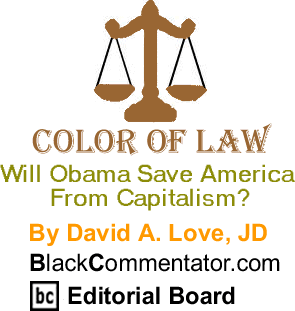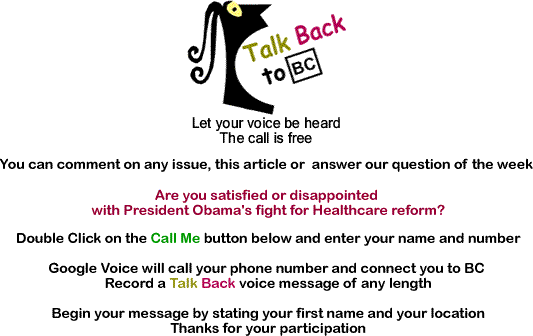
|
||||||||||||||||||||||

|
|
 |
|
Michael Moore’s new film, Capitalism: A Love Story, looks and sounds a lot like a huge conspiracy theory. Too bad all of it is true. Missing this time around were the legions of corporate
shills employed to discredit this film, the way they tried to
do with Moore’s previous film about the healthcare industry, Sicko. Maybe they just gave up. American-style capitalism is the system that gives you airline pilots buying groceries with food stamps; sheriffs and robber barons throwing families out of their homes and into the street; corporations taking out insurance policies on their own employees; corporations slashing jobs to earn record profits; college loans the size of mortgages, and people dying because they have a pre-existing condition, or can’t afford to get sick. For a number of years, the boosters, the sales representatives, the pimps and prostitutes of this deeply flawed system did a great job of convincing the rest of us that no one else in the world had it better. This is the land of opportunity, they told us. The reality is that for all of its rhetoric, America is more unequal in terms of wealth and income than other industrial democracies. Far more economic mobility is to be found in those “socialist” European nations that conservatives are so loathe to emulate. America
is a nation of sharecroppers. Not in the pull-yourself-up-by-the-bootstraps
sort of way, either. The few at the top now have more than ever
because they stole it from the many, typically by highway robbery.
And every day, they continue to dupe the many into giving more.
Elizabeth Warren, chair of the Congressional Oversight Committee that is investigating the $700 billion bank bailout giveaway, a.k.a., Troubled Assets Relief Program (TARP), told the Washington Post that “the middle class is under terrific assault.” Middle class families are actually earning about $800 less than a generation ago. This reality precipitated the need to have two wage earners in each family, and to borrow more and save less just to stay above water. But people are drowning by the millions. Meanwhile, the economic puppeteers seem to gloat over the fact that they are stealing an ever-increasing part of the economic pie at the expense of the multitude. On March 5, 2006, Citibank - a TARP welfare recipient of late - issued a memo to investors titled, Revisiting Plutonomy: The Rich Getting Richer. Plutnomy is defined as, “An economy that is driven by or that disproportionately benefits wealthy people, or one where the creation of wealth is the principal goal.” The Citibank memo proclaimed that
Perhaps the most invidious part of the report warns that electoral democracy threatens to disrupt the wonderful party the rich are having:
The U.S. economy is worse than at any time since the Great Depression. In fact, as Simon Johnson of MIT recently told Bill Moyers, we are currently experiencing elements of a depression. But in this jobless recovery, where there is one job for every six job seekers, Wall Street is doing well because its fate is not dependent upon the employment of everyday working people. Rather, its fate is dependent upon government handouts, paper shuffling, and the exotic hustling instruments to which they have grown accustomed. But we have been here before. Eighty years ago, on October 24-29, 1929, the stock market collapsed. It was a testament to an economic system run amok, unregulated and unrestrained, for the benefit of concentrated, monopolistic power. President Franklin D. Roosevelt ushered in the New Deal - a series of economic programs and initiatives based on relief to the unemployed and farmers, reform of business, banking and finance, and economic recovery. The New Deal meant public works and infrastructure programs, economic planning by the government, social security, and labor standards that favored union growth. There was a sense that workers, consumers and farmers should have influence with the government, not just corporations. Today - with the erosion of the New Deal legacy creating the huge mess that is early twenty-first-century America - President Obama has a golden opportunity to make things right. But will his administration step up to the plate and bring in the necessary reforms? Just as F.D.R. saved capitalism from itself, will Obama save America from capitalism? Or is the game already too fixed? These times scream out for a “new” New Deal. Jobs are sorely needed by millions, but will not appear out of thin air. The foreclosed and unemployed middle class are joining the ranks of the poor and the homeless. The national infrastructure is crumbling. And the cartels and monopolies of old have returned. A paltry and ineffectual stimulus package, accompanied by some tweaking at the edges of a carnivorous, predatory system, will not make a difference.
In other words, President Obama will do what the people voted for in November. BlackCommentator.com Editorial Board member David A. Love, JD is a journalist and human rights advocate based in Philadelphia, and a contributor to The Huffington Post, The Progressive Media Project, McClatchy-Tribune News Service, In These Times and Philadelphia Independent Media Center. He also blogs at davidalove.com, NewsOne, Daily Kos, and Open Salon. Click here to contact Mr. Love. |
|
 |
|
Any BlackCommentator.com article may be re-printed so long as it is re-printed in its entirety and full credit given to the author and www.BlackCommentator.com. If the re-print is on the Internet we additionally request a link back to the original piece on our Website. Your comments are always welcome. eMail re-print notice
If you send us an eMail message we may publish all or part of it, unless you tell us it is not for publication. You may also request that we withhold your name. Thank you very much for your readership. |
|
| |
|
| October
15 , 2009 Issue 346 |
|
| Executive Editor: Bill Fletcher, Jr. |
| Managing Editor: Nancy Littlefield |
| Publisher: Peter Gamble |
| Est. April 5, 2002 |
Printer Friendly Version
in resizeable plain
text format or pdf
format. |
 |

|
| |
| |






























 Many
at the bottom actually believe that they will emerge at the top
someday, so they don’t make a fuss. Capitalism, American-style,
is that great big Ponzi scheme. And apparently, we was had.
Many
at the bottom actually believe that they will emerge at the top
someday, so they don’t make a fuss. Capitalism, American-style,
is that great big Ponzi scheme. And apparently, we was had. 
 Capitalism
is as capitalism does. Maximization of profit above all else -
to the exclusion of ethics, morality and the public good - is
the mark of a vulture society. And this arrogant, coldhearted
endeavor has been a bipartisan effort. Beginning with Reagan,
Republican administrations have championed drastic cuts to the
social safety net and massive tax cuts for the wealthiest Americans.
Meanwhile, the Clinton years ushered in deregulation of the financial
markets, and an end to welfare as we know it. Corporations have
far more power than a free society can tolerate. And both major
political parties are the water carriers of this plutonomy. They
are the field hands for the financial interests that currently
run the show and drive public policy - and are driving this nation
into the ground.
Capitalism
is as capitalism does. Maximization of profit above all else -
to the exclusion of ethics, morality and the public good - is
the mark of a vulture society. And this arrogant, coldhearted
endeavor has been a bipartisan effort. Beginning with Reagan,
Republican administrations have championed drastic cuts to the
social safety net and massive tax cuts for the wealthiest Americans.
Meanwhile, the Clinton years ushered in deregulation of the financial
markets, and an end to welfare as we know it. Corporations have
far more power than a free society can tolerate. And both major
political parties are the water carriers of this plutonomy. They
are the field hands for the financial interests that currently
run the show and drive public policy - and are driving this nation
into the ground. If
the Obama administration wants to be a truly transformational
force in American history, rather than a slightly-better-than-average,
one-term presidency with good intentions, it will give America
the new New Deal. The Obama administration will find the intestinal
fortitude to
If
the Obama administration wants to be a truly transformational
force in American history, rather than a slightly-better-than-average,
one-term presidency with good intentions, it will give America
the new New Deal. The Obama administration will find the intestinal
fortitude to 










